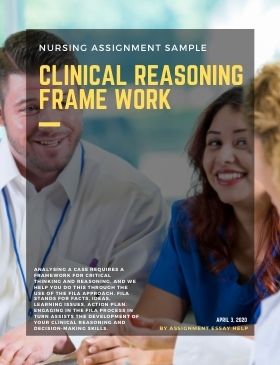
You can download the sample Nursing case study of Nursing Case Study with the following question for free at the end of this page. For further assistance with Nursing Assignment help, please check our offerings in Nursing assignment solutions. Our subject-matter experts provide online assignment help to Nursing students from across the world and deliver plagiarism free solution with a free Turnitin report with every solution.
(AssignmentEssayHelp does not recommend anyone to use this sample as their own work.)
Nursing Question
Nursing Solution
|
FACTS |
IDEAS |
LEARNING ISSUES |
ACTION PLAN |
|
John is a 19 years old male of aboriginal origin and exhibits the history of cannabis addiction and petrol inhalation. He lives with his relatives and most of the times at night tracked roaming around his relatives’ premises. John has no history of previous psychiatric problems. |
The pattern of consistent drug addiction disrupted the personal as well as family life of the patient and considerably impacted his psychosocial profile across the community environment. Usually, the aboriginal males found engaged with drug addiction and suicidal tendencies across the community environment. |
The patient has no specific underlying health issues as evident from the provided scenario. However, he is affected by his cultural norms, customs, tradition and social isolation that considerably impact the state of his mental health. Evidence-based research literature advocates the adverse manifestations of cannabis addiction and petrol sniffing on the social and family lives of aboriginal individuals (Richmond, et al., 2013). The illicit use of drugs leads to the induction of criminal activities, workplace instability and violence that reciprocally disrupt the health and safety of the individuals of the aboriginal community. |
The nurse professional and the healthcare team require organizing health promotion sessions in the context of elevating the level of awareness of the patient in relation to the adverse manifestations of the drug abuse. This scenario requires the administration of cognitive behavioural intervention for influencing the thought process and behaviour of the patient while motivating him to quit the cannabis use and acquire a healthier lifestyle. |


 WhatsApp Us
WhatsApp Us